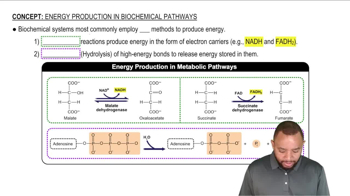Textbook Question
Show how you would accomplish the following syntheses efficiently and in good yield. You may use any necessary reagents.
(g)

 Verified step by step guidance
Verified step by step guidance Verified video answer for a similar problem:
Verified video answer for a similar problem:



 6:02m
6:02mMaster General Features of Redox with a bite sized video explanation from Johnny
Start learning